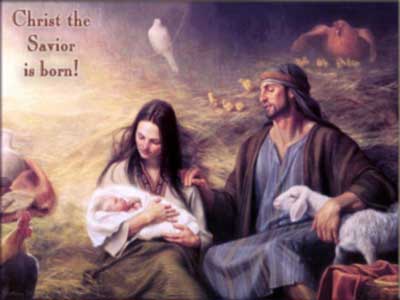



l Home l Articles l Music on Line l Web Board l Guest Book l Catholic Links l นักบุญทั้งหลาย l กุหลาบทิพย์ l Fordec l Contact Us l
นักบุญโทมัส ชื่อของท่านในภาษาอารามัย หมายความว่า "คู่แฝด" และด้วยเหตุนี้เองที่นักบุญยอห์นเรียกท่านเป็นภาษากรีกว่า "ดิดิม" (ยน.11:16,20,24) ท่านเป็นผู้ที่กล้าหาญ เสียสละอย่างยอดเยี่ยม เมื่อครั้งที่พระเยซูเจ้าตรัสบอกบรรดาอัครสาวกว่า พระองค์ต้องรีบกลับไปเยี่ยมลาซารัส ที่แคว้นยูเดีย พวกสาวกทราบข่าวประชาชนที่นั่นคงเอาหินทุ่มพระเยซูเจ้า ท่านได้กล่าวว่า "ให้เราไปด้วยกัน จะร่วมตายกับพระอาจารย์" (ยน.11:16)
เมื่อครั้งที่พระเยซูเจ้าปรากฏพระองค์เองแก่พวกสาวก หลังจากที่พระองค์กลับคืนพระชนม์ชีพ พวกสาวกได้กล่าวแก่โทมัสว่า "เราได้พบพระเยซูเจ้าแล้ว" (ยน.20:35) แต่ท่านตอบว่า "ข้าพเจ้าไม่เชื่อ จนกว่าข้าพเจ้าจะได้เอานิ้วสอดเข้าไปในบาดแผลตะปู ที่พระหัตถ์และพระสีข้างของพระองค์" หลังจากนั้น 8 วัน ขณะที่โทมัสอยู่กับพวกสาวก พระเยซูเจ้าเสด็จมาประทับยืนต่อหน้าท่านและตรัสแก่โทมัสให้เอานิ้ว และนิ้วสัมผัสที่สีข้างของพระองค์ พลางตรัสว่า "อย่าขาดความเชื่อเลย จงเชื่อเถิด" (ยน.20:27) โทมัสได้จาริกไปประกาศพระศาสนาในแคว้นต่างๆ สู่เปอร์เซีย และอินเดีย ซึ่งต่อมาท่านได้สิ้นชีวิตเป็นมรณสักขี
THOMAS the Apostle
Also known as Didymus; the Twin; Apostle of India; Doubting ThomasMemorial
3 July; celebration of the transference of his body to Edessa in Mesopotamia
Profile
Apostle. He was ready to die with Jesus when Christ went to Jerusalem, but is best remembered for doubting the Resurrection until allowed to touch Christ's wounds. Preached in Parthia, Persia and India, though he was so reluctant to start the mission that he had to be taken into slavery by a merchant headed that way. He eventually gave in to God's will, was freed, and planted the new Church over a wide area. He formed many parishes and built many churches along the way. His symbol is the builder's square, from an ancient story that built a palace for King Guduphara in India.
Born
unknownDied
stabbed with a spear c.72 in India
Patronage
against doubt; architects; blind people; builders; construction workers; Ceylon; East Indies; geometricians; India; masons; Pakistan; people in doubt; Sri Lanka; stone masons; stonecutters; surveyors; theologians
Images
Gallery of images of Saint Thomas
Readings
"Thomas, one of the twelve, called the Twin, was not with them when Jesus came." He was the only disciple absent; on his return he heard what had happened but refused to believe it. The Lord came a seconde time; he offered his side for the disbelieving disciple to touch, held out his hands, and showing the scars of his wounds, healded the wound of disbelief.
Dearly beloved, what do you see in these events? Do you really believe that it was by chance that this chosen disciple was absent, then came and heard, heard and doubted, doubted and touched, touched and believed? It was not by chance but in God's providence. In a marvelous way God's mercy arranged that the disbelieving disciple, in touching the wounds of his master's body, should heal our wounds of disbelief. The disbelief of Thomas has done more for our faith than the faith of the other disciples. As he touches Christ and is won over to belief, every doubt is cast aisde and our faith is strengthened. So the disciple who doubted, then felt Christ's wounds, becomes a witness to the reality of the resurrection.
Touching Christ, he cried out: "'My Lord and my God.' Jesus said to him: 'Because you have seen me, Thomas, you have believed.'" Paul said: "Faith is the guarantee of things hoped for, the evidence of things unseen." It is clear, then, that faith is the proof of what cannot be seen. What is seen gives knowledge, not faith. When Thomas saw and touched, why was he told: "You have blieved because you have seen me?" Because what he saw and what he believed were different things. God cannot be seen by mortal man. Thomas saw a human being, whom he acknowledged to be God, and said: "My Lord and my God." Seeing, he believed ; looking at one who was true man, he cried out that this was God, the God he could not see.
What follows is reason for great joy: "Blessed are those who have not seen and have believed." There is here a particular reference to ourselves. We are included in these words, but only if we follow up our faith with good works. The true believer practices what he believes. But of those who pay only lip service to faith, Paul has this to say: "They profess to know God, but they deny him in their works." Therefore James says: "Faith without works is dead."
- from a homily by Pope Saint Gregory the Great

